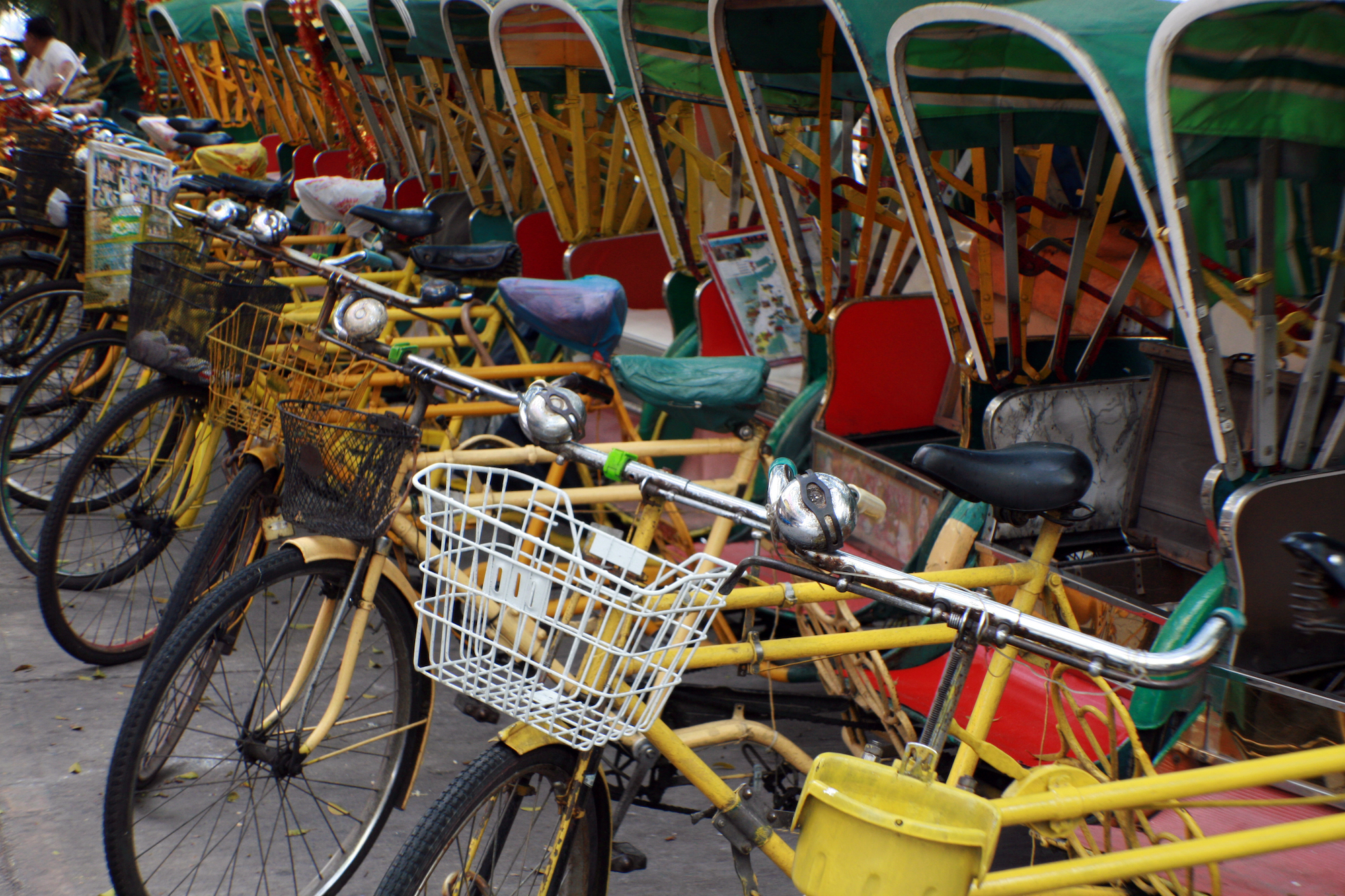Macao’s rickshaw drivers are struggling. Can this nostalgic form of transportation be revived? Link copied
The city’s distinctive yellow and green rickshaws were once one of its main means of transport. Veteran drivers say more could be done to secure the rickshaws’ survival.

Rickshaw driving in Macao is a dying profession, but some ask why this eco-friendly way of traversing the city isn’t being revived as a cultural attraction – as is being done overseas.
Veteran rickshaw driver Leong Sun Iok told Jornal Tribuna de Macau that the profession was relegated to the elderly, as a way to earn pocket money in their retirement years, because drivers no longer earn enough to support families. The 60-year-old said that drivers tended to be men aged between 50 and 70.
Business has been worse since the pandemic, he said. Even though tourist numbers are increasing and many drivers have quit in recent years (meaning there’s less competition), people simply aren’t willing to pay for rickshaw rides – which cost significantly more than taxis.
[See more: Travel back in time to experience Macao’s firecracker era]
Leong told Tribuna he might earn up to 700 patacas per day on weekends, but often waits whole days in vain during the week. Bad weather made it even harder to secure customers.
Three-wheeled rickshaws were introduced to Macao in 1948, and quickly became the city’s main form of transportation. Demand supported more than 1,000 drivers during the rickshaw heyday; now, however, there are only about 50 divers registered. In reality, Leong said, it’s more like two dozen who actually still work.
Only tourists take rickshaw trips in Macao. A standard journey between Hotel Lisboa and the Ruins of St Paul’s takes between 10 and 20 minutes and costs a non-negotiable 100 patacas (a minimum rate set by the Macao Pedicab Drivers Union). Adding on a few more hotspots, like A-Ma temple, could bump the price up to 350 patacas, according to the Macao Tourism website.
Leong acknowledges it is expensive when compared to a taxi. And “riding a rickshaw in Macau is not the same as riding a gondola in Venice,” he notes.
But Leong told Tribuna he sees potential for rickshaws to be “transformed into cultural and creative products [which] play a certain role in beautifying the entire city.”
For starters, they should be electrified, Leong said, a move that would make them far more practical. He said it was up to the government to create conditions that would allow rickshaw drivers to update their vehicles and adapt to the future.